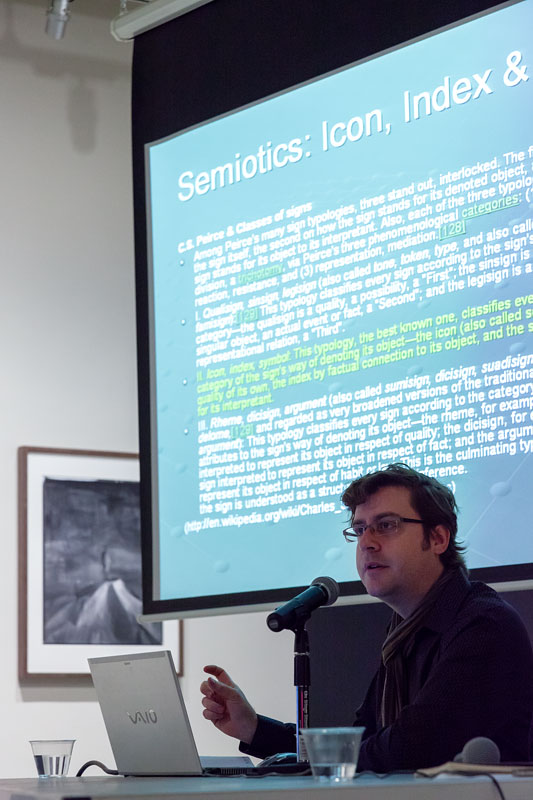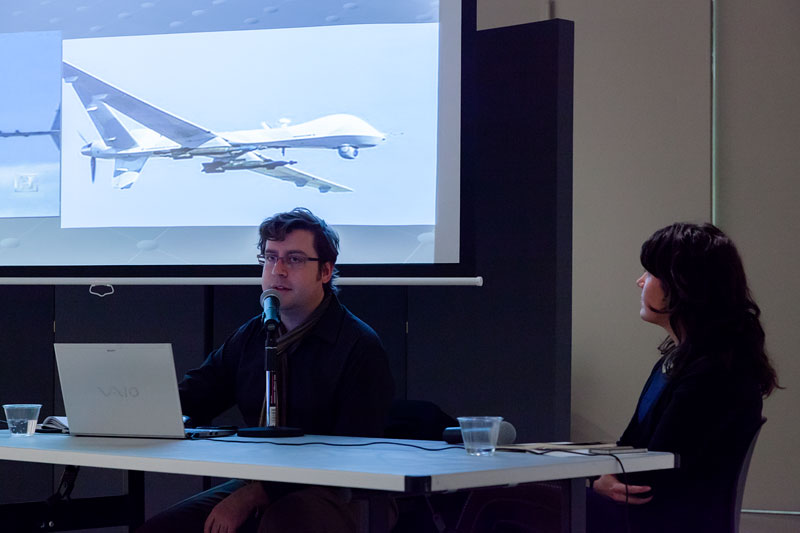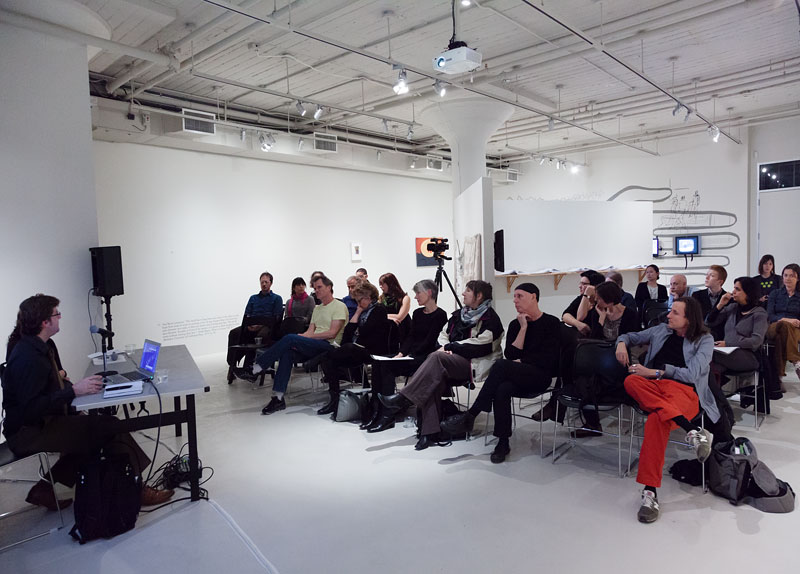Robot Visions and Embodied Minds
December 12, 6—8 pm
Can drones see? Do robots think? Will artificial processors ever match the human brain’s capacity for understanding? In his work on automated warfare and post-human ethics, philosopher Peter Asaro explores the theories of mind and representation that underlie dominant conceptions of Artificial Intelligence. Drawing a distinction between the natural meaning of indexical signs—for instance, smoke as an indicator of fire—and the “non-natural meaning” of symbols, Asaro argues that the brain deals with the world through embodied interactions rather than through elaborate systems of symbolic representation. Touching on recent debates that emphasize material practices of producing knowledge over traditional theories of mind built upon mental images, perception, and subjective experience, Asaro will explore the parallels between philosophical attempts to understand representation and the illusive nature of the index.
Peter Asaro is a philosopher of science, technology and media. His work examines the interfaces between social relations, human minds and bodies, artificial intelligence and robotics, and digital media. His current research focuses on the social, cultural, political, legal and ethical dimensions of military robotics and UAV drones, from a perspective that combines media theory with science and technology studies. Asaro received his PhD in the History, Philosophy and Sociology of Science from the University of Illinois at Urbana-Champaign. He is currently Assistant Professor and Director of Graduate Programs in the School of Media Studies at the The New School for Public Engagement.
Organized and moderated by Erin Sickler, 601Artspace.
Photography Rafael Gamo
December 12, 6—8 pm
Can drones see? Do robots think? Will artificial processors ever match the human brain’s capacity for understanding? In his work on automated warfare and post-human ethics, philosopher Peter Asaro explores the theories of mind and representation that underlie dominant conceptions of Artificial Intelligence. Drawing a distinction between the natural meaning of indexical signs—for instance, smoke as an indicator of fire—and the “non-natural meaning” of symbols, Asaro argues that the brain deals with the world through embodied interactions rather than through elaborate systems of symbolic representation. Touching on recent debates that emphasize material practices of producing knowledge over traditional theories of mind built upon mental images, perception, and subjective experience, Asaro will explore the parallels between philosophical attempts to understand representation and the illusive nature of the index.
Peter Asaro is a philosopher of science, technology and media. His work examines the interfaces between social relations, human minds and bodies, artificial intelligence and robotics, and digital media. His current research focuses on the social, cultural, political, legal and ethical dimensions of military robotics and UAV drones, from a perspective that combines media theory with science and technology studies. Asaro received his PhD in the History, Philosophy and Sociology of Science from the University of Illinois at Urbana-Champaign. He is currently Assistant Professor and Director of Graduate Programs in the School of Media Studies at the The New School for Public Engagement.
Organized and moderated by Erin Sickler, 601Artspace.
Photography Rafael Gamo





88 Eldridge St. New York, NY 10002
Tel: 212-243-2735
Open Thurs-Sun 1-6pm
© 601Artspace, 2018
